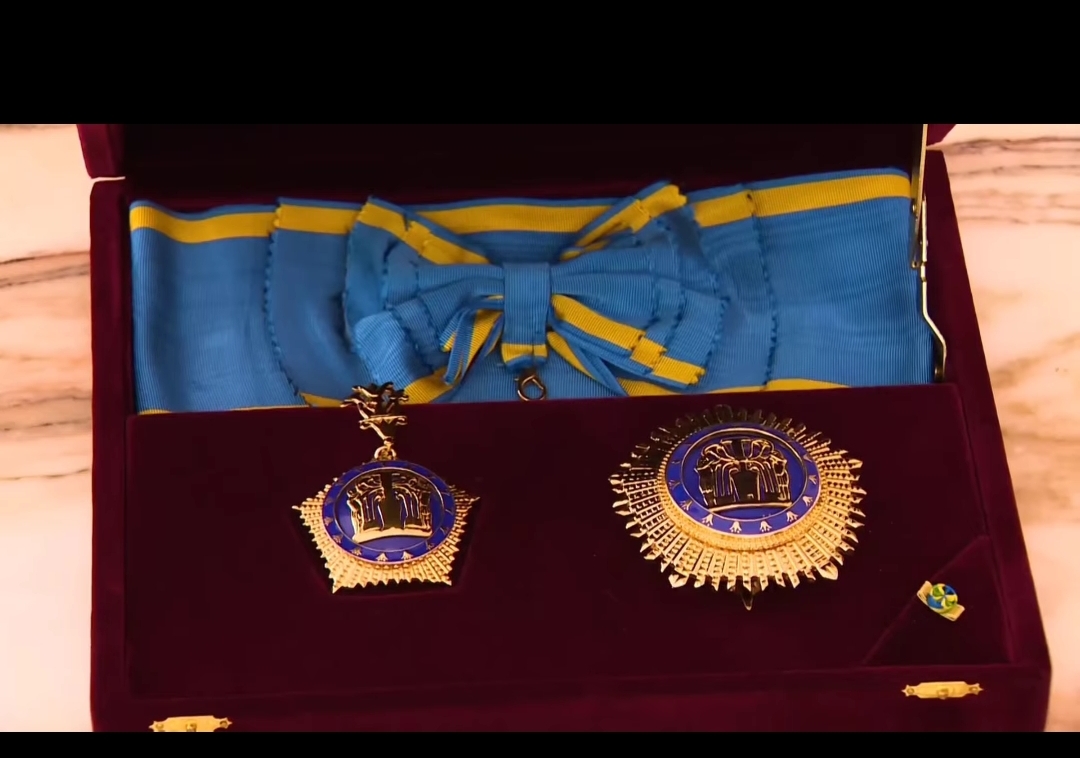Contents
The “Order of the Nile Medal”: Honoring Excellence and Service


President Sisi bestows the “Sultan of the Bohras” with the Order of the Nile in recognition of his continuous efforts in Egypt
Today, President Abdel Fattah El-Sisi received Sultan Mufaddal Saifuddin, Sultan of the Bohra sect in India, accompanied by his sons Prince Jaafar Al-Sadiq Imaduddin, Prince Taha Najmuddin, and Prince Hussein Burhanuddin, in the presence of Major General Abbas Kamel, Head of General Intelligence, and Mufaddal Muhammad, the representative of the Sultan in Cairo.
Counselor Ahmed Fahmy, the official spokesman for the Presidency of the Republic, stated that the President welcomed Sultan Mufaddal Saifuddin as a dear guest of Egypt, praising the historical relations between Egypt and the Bohra sect and appreciating the appreciated role of the Sultan and the sect in restoring and renovating the shrines of Ahl al-Bayt and several historical Egyptian mosques, as well as on the various charitable activities in Egypt, in a way that integrates with the state’s efforts to achieve development, and its keenness to develop historic Cairo and restore and highlight its authentic civilized character.
President El-Sisi granted Sultan Mufaddal Saifuddin, the Sultan of Bohra, the Order of the Nile in appreciation for his continuous efforts in Egypt on the cultural, charitable, and societal levels.
About The Medal
In the realm of prestigious decorations and honors, the “Order of the Nile Medal” holds a place of exceptional significance. This distinguished award, adorned with history, symbolism, and rarity, has been bestowed upon remarkable individuals whose contributions have left an indelible mark on their nations and the world. In this blog post, we delve into the captivating history and significance of the “Order of the Nile Medal.”
A Glimpse into History
The “Order of the Nile Medal” has its origins in the vibrant history of Egypt, a land renowned for its rich heritage and cultural splendor. Established in 1915, during the reign of Sultan Hussein Kamel, the medal was initially intended to honor those who exhibited exceptional service to the state. Over the years, its purpose evolved to recognize not only domestic achievements but also international contributions to diplomacy, peacekeeping, and the betterment of humanity.
Symbolism and Design
The design of the “Order of the Nile Medal” is a marvel in itself, meticulously crafted to reflect the values and history of Egypt. The medal features a radiant blue enamel cross adorned with gold, echoing the colors of the Nile River and the golden sands of the desert. In its center lies the emblem of the Nile, a symbol of the life-giving waters that have sustained Egyptian civilization for millennia. This emblem is surrounded by intricate patterns that pay homage to Egypt’s artistic and architectural legacy.
Categories and Classifications
The “Order of the Nile Medal” is divided into several categories, each of which reflects the scope and magnitude of the recipient’s achievements. These categories encompass fields such as culture, science, diplomacy, humanitarian work, and more. Within each category, there are different classifications that indicate the level of distinction conferred upon the recipient.
Notable Recipients
Over the years, the “Order of the Nile Medal” has graced the chests of an illustrious array of individuals who have made invaluable contributions to society. From statesmen and diplomats who have dedicated their lives to fostering international relations, to scientists who have advanced human knowledge and culture, the medal has been a badge of honor for those who strive for excellence and service.
Preserving the Legacy
As with any esteemed award, the “Order of the Nile Medal” carries the responsibility of preserving its legacy and the values it represents. The recipients of this medal, whether they hail from Egypt or beyond its borders, stand as exemplars of dedication, achievement, and the potential for positive change. Their stories inspire future generations to reach for greatness, to lead with integrity, and to serve with unwavering commitment.
Conclusion
The “Order of the Nile Medal” transcends its physical form to embody the aspirations and accomplishments of those it honors. It serves as a testament to the enduring bond between human excellence and the spirit of a nation. Through its history, symbolism, and the remarkable individuals it recognizes, the medal reminds us of the transformative power of service, and the capacity of a single individual to shape the course of history.
Saifee Hospital Mumbai: Delivering Excellence in Healthcare
Allama, Syedi Sadiqali Saheb {AQ} Bin Mulla Sultanali
Mukasir al-Dawat al-Haq Syedi Dr. Qaidjohar Bs Ezzuddin DM
Follow us on Youtube
Follow us on Instagram
Follow us on Facebook

